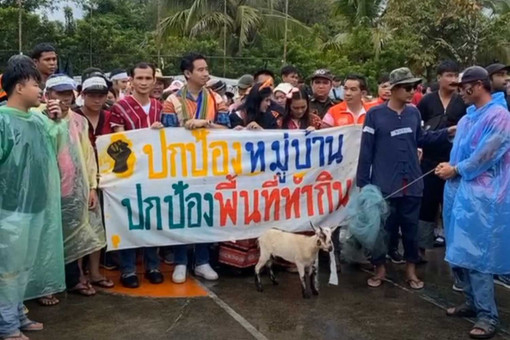Karen residents in Omkoi fear pollution of water sources if project goes ahead
PUBLISHED : 28 Sep 2023 at 16:16

CHIANG MAI: Pita Limjaroenrat, former leader of the Move Forward Party, on Thursday joined a protest by Karen ethnic villagers against a proposed coal mine in Omkoi district of this northern province.
The group marched in the rain from a sports field to the Omkoi district office to submitted a letter of protest to the district chief. Mr Pita was joined by a number of MPs and members of Move Forward Party.
The march followed a public forum held earlier in the day and attended by a number of human rights activists, lawyers and environmentalists.
The panelists included representatives of the Kaboedin village community, a network of people opposed to the mine and others who stand to be affected by the project.
A private company first applied for a 10-year concession to operate a coal mine on a 284-rai site in tambon Omkoi of Omkoi district in 1999. However, local residents only learned of the plan in 2019. That was when the indigenous Karen people of Kaboedin village started to campaign against the project.
Since the planned mine would be located by a stream that is considered the lifeline of the village, residents are afraid the water would be polluted by the mining operation and affect their way of life.
In July 2020, the National Human Rights Commission (NHRC) found human rights violations in an environmental impact assessment (EIA) report on the project and recommended the plan be revised.
In particular, the NHRC said the public hearing carried out in Kaboedin village was flawed. The report about the hearing contained errors including a list of participants, some of whom said they had not attended.
The hearing was focused mainly on what local people wanted rather than providing them with correct information about the project, the commission added.

